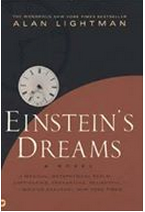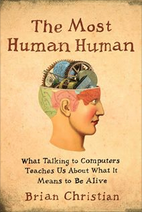A good book changes how you see the world, and I would like to share a few that have done that for me. I have linked the cover images to their listing on Amazon for your convenience.
Books on Time and Timing
When: The Art of Perfect Timing by Stewart Albert
Stewart Albert has done us a great service by making the study of timing and time-related errors his life's work. The culmination of years of information collection and curation, When provides a handful of tools for understanding and working within the complex nature of time.
As a student of Albert's seminar on space and time co-taught with the College of Design's Tom Fisher, I had the good fortune to learn these concepts firsthand as the book was being written. By taking note of the trends and patterns, Albert shows that we can predict and work with time in a much more intentional way than we might expect.
What Time is this Place by Kevin Lynch
An excellent follow-up read from the same seminar is What Time is this Place by Kevin Lynch which unravels the complex connection between our relationship to place and time. This book explores how we interact with and manipulate time through our actions and the constructs we create. An excellent resource, this book has greatly influenced my work as an experience designer.
Einstein's Dreams by Alan Lightman
To round out our reading list about time, I recommend one of my favorite books by Alan Lightman. As respected for his work in astrophysics as he is in the humanities, Alan Lightman elegantly explores the multifaceted nature of time. Einstein's Dreams is comprised of a handful of little vignettes about Einstein's conceptions of how time could be. Beautifully written, the book explores fantastical worlds that tow the line between metaphor and reality. Recommended for anyone interested in the fantastical and mind boggling nature of time.
Another favorite by Lightman is his creation allegory called Mr g that brings together our current understanding of physics and the origins of the universe.
Books on Humanity and Civilization
The Most Human Human by Brian Christian
In this story, author and poet Brian Christian shares his experiences as a human contestant in the Turing test designed to distinguish between human and artificial intelligence. His quest to appear more human than a robot underpins our desire for deeper connections between ourselves. In a way, AI challenges us to be better at being human and that is what this book is about.
Connectome by Sebastian Seung
One of the world's leading researchers in neuroscience, Sebastian Seung deconstructs the mind with a conversational writing style and rigorous scientific concepts. The Connectome is the map of all of the connections in the brain and this, Seung says, defines who we are. Seung explores ideas of identity and provides constructs for thinking about the human mind. To contribute to his research, you can go to this website and help map the structural and functional components of the human brain.
My Ishmael by Daniel Quinn
Written through the conversations between a sentient gorilla and a young girl, My Ishmael confronts the unsustainable structures of modern society. Deconstructing our fundamental cultural concepts, Daniel Quinn asks us to consider the difference between a culture founded on the "make stuff, get stuff" cycle versus a "give support, get support" model. Quinn explores what it means to be wealthy in our new world and how we conflate material wealth with the kind that fulfills our needs.
For a follow up read, consider his later short novel called Beyond Civilization which begins to define what a more sustainable culture might look like.
Moral Tribes by Joshua Greene
An excellent follow-up to Daniel Quinn, Moral Tribes explores the difference between local and global morality and what it means to live in a modern tribal society. Through the culmination of a lifetime of research on human morality, Greene explains how our brains' automatic settings help us live peacefully at a local level and how we can override them in manual mode to function at a global level. Defining and defending utilitarianism with a depth and breadth of research, Moral Tribes is a must read for anyone looking to construct moral frameworks in today's divided world.







